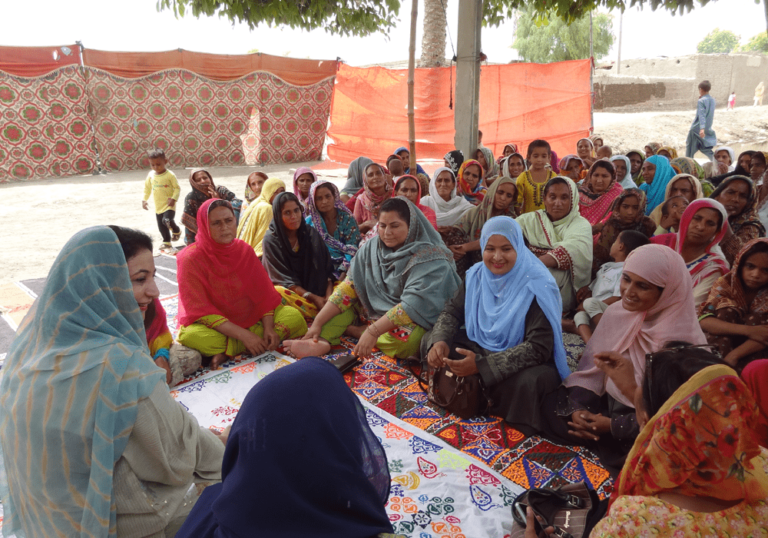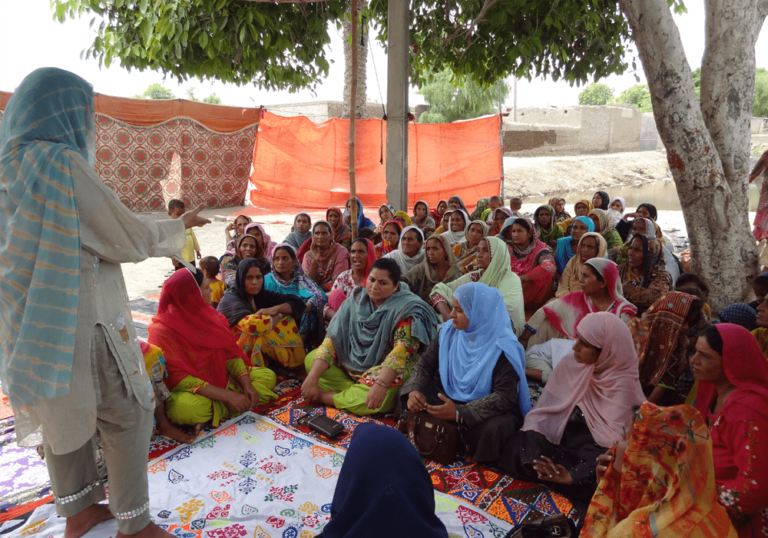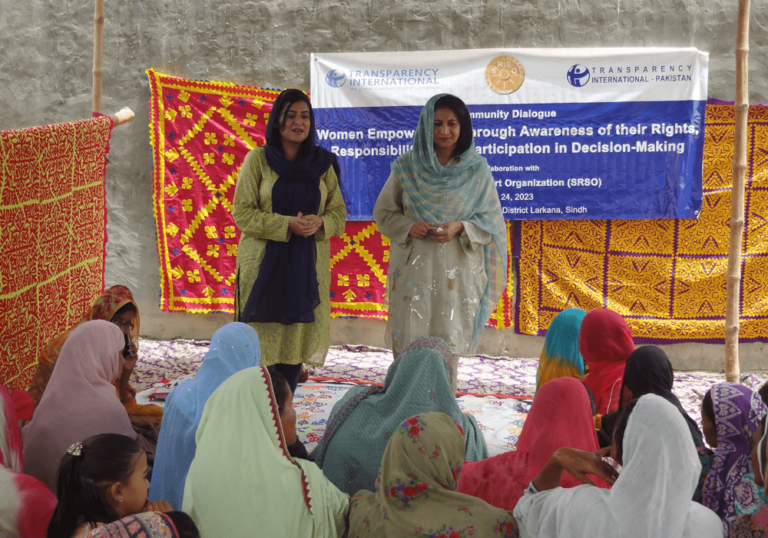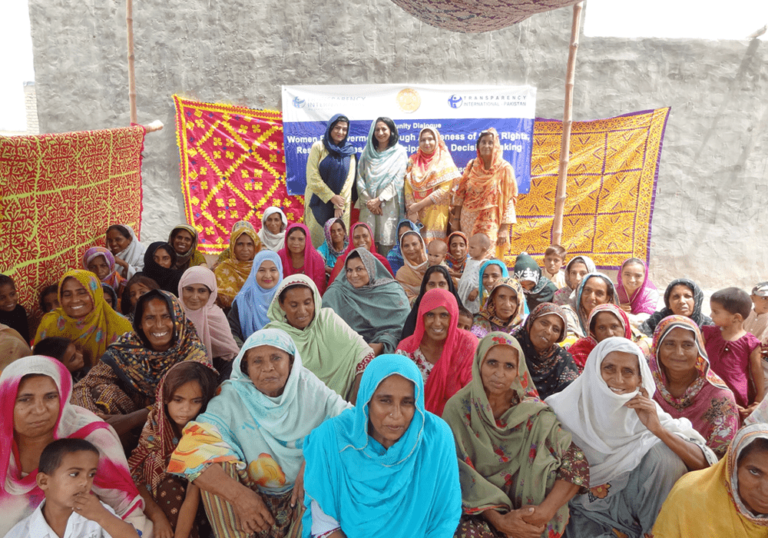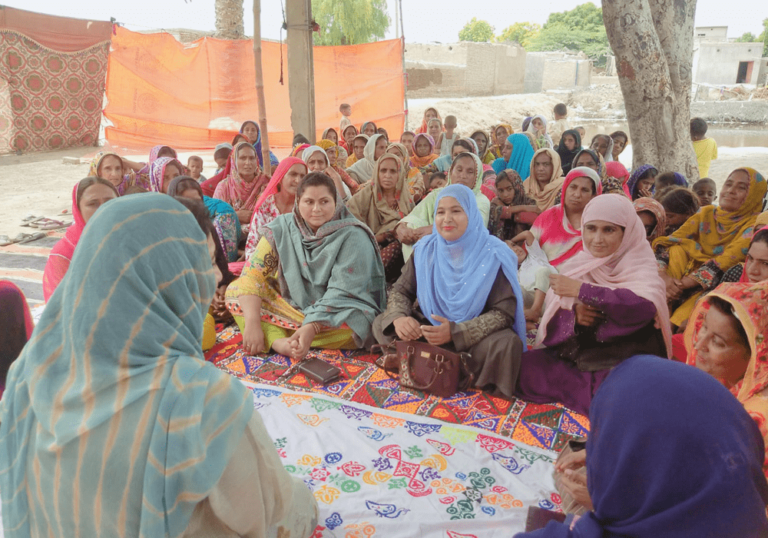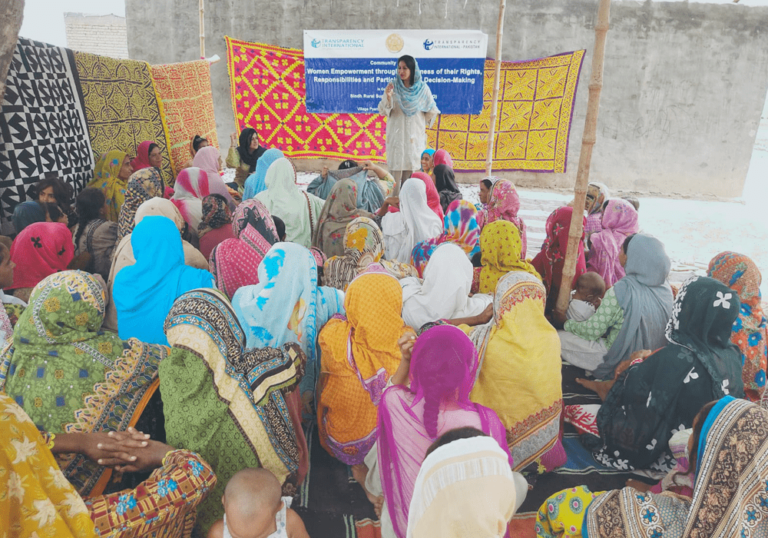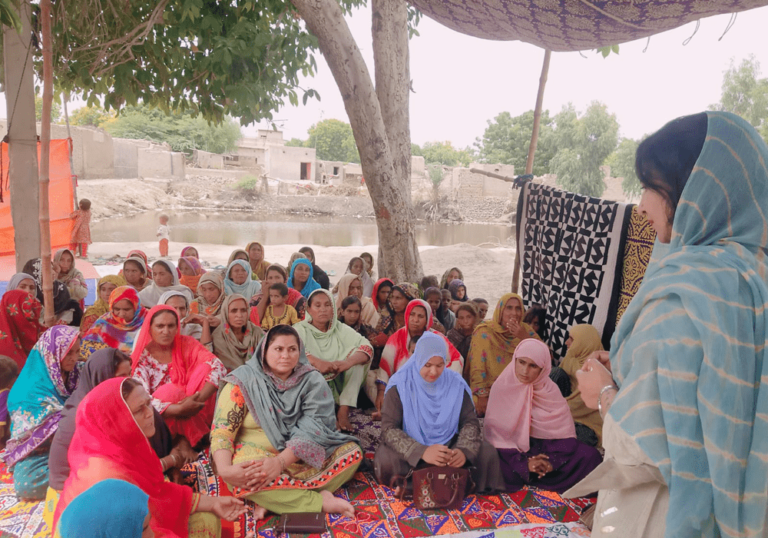- Home
- Community Dialogue on Women Empowerment through Awareness of their Rights, Responsibilities, and Participation in Decision-Making
Community Dialogue on Women Empowerment through Awareness of their Rights, Responsibilities, and Participation in Decision-Making
Community Dialogue on Women Empowerment through Awareness of their Rights, Responsibilities, and Participation in Decision-Making
Venue: Piyaro Magsi, Larkana – Sindh
Day & Date: Thursday, 24th August 2023
Transparency International Pakistan, in collaboration with Sindh Rural Support Organization (SRSO), organized a Community Dialogue in the village of Piyaro Magsi, UC Kothi, Larkana, Sindh, on Thursday, 24th August 2023. The dialogue aimed to raise awareness about gender issues and disparities, rights of women and encouraging their active participation in the political decision-making. The dialogue was attended by more than 50 community women, elected councilors of the local govt, female civil society representatives.
The event commenced with the recitation of the Holy Quran. Ms. Nasreen Memon, Gender Resource Person, TI Pakistan welcomed the participants and shared that Transparency International Pakistan is dedicated to addressing gender disparities, corruption, and injustice against all genders, advocating for people to voice their concerns against corruption. She explained in detail the gendered dimension of corruption and how it affects women access to public service delivery. She highlighted that corruption is also violation of women rights which reflect itself in form of domestic and sexual violence, lack of access to education, and inadequate healthcare. She stressed on the need for women to better aware themselves about their rights so they can raise voice for their entitlements, and participate in political decision-making through their votes during the upcoming elections.
One such instance of lack of awareness of women rights was shared by one of the participants who shared that her husband lives in Saudi Arabia and he neither wants to keep her with him nor wants to end marriage through divorce. When asked about the terms and conditions of the marriage contract, it was revealed that the marriage took place verbally without any written terms. She highlighted that her in-laws had removed certain sections from the “Nikahnama” (document which protect the rights of bride and groom). For the benefit of the women from wider community, Ms. Nasreen emphasized on the significance of the Nikahnama, a marriage contract between two Muslim partners that guarantees women’s rights in marriage, divorce, and inheritance. She noted that while this contract is one of the most important documents a Pakistani woman will sign, many rural women are not informed about its terms when they sign it. It is important that women read nikahnama document at the time of marriage and ensure that its comprehensive and it protects their rights in cases of abusive relationship.
It was also also highlighted that the elder women and community leaders should play their role in raising awareness among other women. They should encourage women to voice their demands for rights and discuss with male members to break the tradition that fosters gender-based inequality. Ms. Nasreen further explained that a woman has the right to include terms in the marriage contract, such as preventing her husband from taking co-wives. If the husband doesn’t fulfill these terms, the wife has the right to demand the marriage’s termination.
Next, Ms. Naseem Magsi, Union Councilor, Kothi, Local Government, Larakana led an interactive session on voter education and the political participation of women in national and local government elections. She encouraged women to engage in community service, volunteering, and the political process to amplify their voices. She stressed the importance of making informed voting decisions by providing valuable information about eligible candidates. Ms. Naseem also explained the electoral process, voter registration, accessing and checking voter lists, various election types, and the procedure for lodging complaints. She encouraged women to check where their vote is registered and ensure that they go to right polling station to cast their vote on the day of the elections. Her session enhanced participants understanding of effective engagement in the electoral process.
Ms. Nasreen Memon, Gender Resource Person, TI Pakistan further highlighted that national identity card is the primary source of identity, through which women will not be able to cast their votes. She emphasized that those women who do not have CNICs or those whose CNICs are nearly expiring should get their CNICs ahead of the upcoming elections to be able to cast their choice during the elections. She also explained the process of obtaining CNICs from NADRA offices and highlighted that women can also seek free advice on the matters pertaining to registration during elections and obtaining CNICs, from TI Pakistan Advocacy and Legal Advice Centre.
Towards the end, community women and the SRSO team expressed gratitude for TI Pakistan for arranging community dialogue to enhance awareness about the rights and entitlements of women. They committed to raise their voices against gender-based violations and inequalities, striving to create positive change in their communities.


